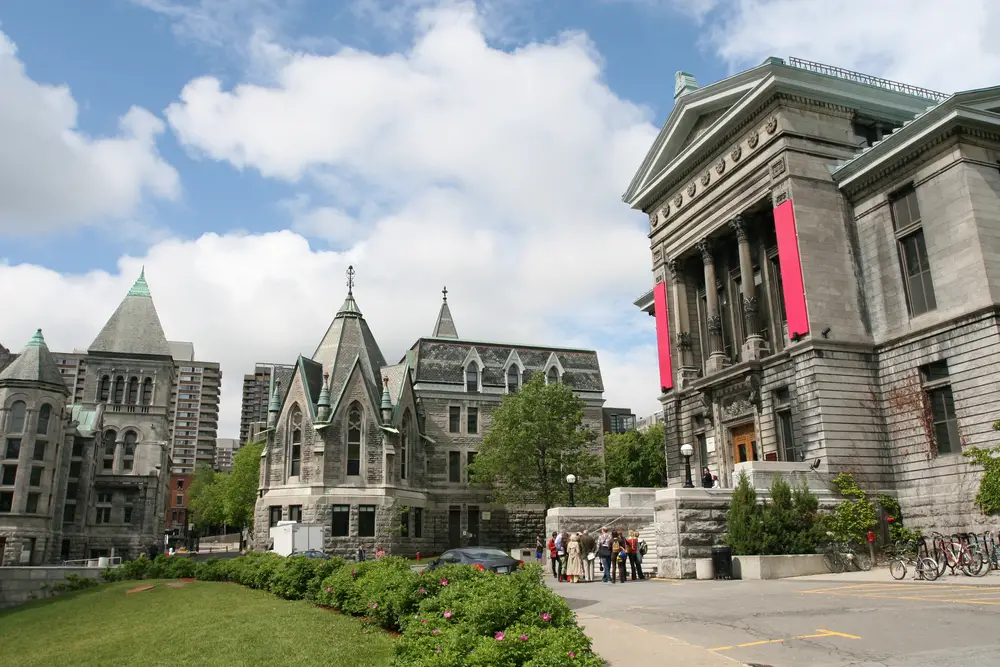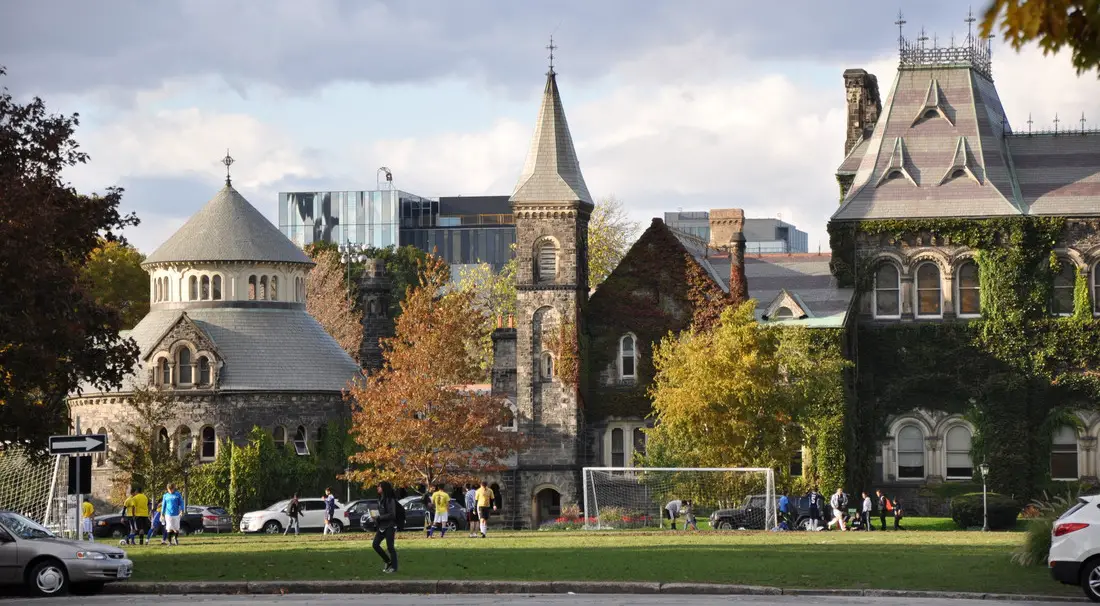Studying in Italy, Germany or France is a wonderful experience, but it’s not always a walk in the park: As an international student from the U.S., you will encounter a language barrier, a potentially confusing new culture and a boatload of bureaucracy, all of which can put a damper on your experience.
This is where Canada comes into the picture. The northern neighbor of the U.S. offers the perfect mix of cultural differences and familiarity, not to mention top-notch universities at a way cheaper cost than back home.
On average, an undergraduate course in Canada costs half of what it does in the U.S., ranging from $4,500 to $13,000 per year. While international transplants often need to pay slightly higher fees, the average international student still only shells out about $16,700 per year for their studies in Canada, which is 30 percent less than the $25,000 per year that out-of-state tuition costs in public universities in the U.S.
It’s no surprise that about nine thousand American students per year decide to head north for college. That number is on the rise, too: Since the 2016 presidential elections, applications from Americans have increased as much as 80 percent in some Canadian universities.
Interested, eh? Here’s our complete step-by-step guide on how to study abroad in Canada.
1. Decide Where You Want to Live
Being the world’s second largest country by landmass, Canada offers various landscapes, climates and cultures. If you are not a fan of the cold, you should head to the western portions of British Columbia, where there is a moderate oceanic climate. The cities of Victoria and Vancouver are the least frosty in the nation. Vancouver is also great for skiers — within a five hour-drive, you have access to six ski resorts.
If you are a culture and language buff, head to the predominantly French-speaking cities of Montreal or Quebec City. Toronto is a superb option for urbanites — it’s often called a smaller, cleaner version of New York. Keep your financial situation in mind too. Annual living expenses for students can range from $7,000 to $11,000, depending on which part of Canada you move to. Alberta is known as a particularly affordable province, with a low unemployment rate.
2. Investigate Your University Choices
Canada is home to 92 universities and 175 community colleges. Altogether, they offer more than ten thousand different undergraduate and graduate programs, many of them world-renowned. This year, 26 Canadian institutions made it into the annual Times Higher Education magazine’s World University Rankings.
Some of the Canadian schools with the best reputations are the University of Alberta, University of British Columbia, University of Toronto, University of Montreal and McGill University. Other notable schools are the University of Calgary, Concordia University, McMaster University, Queen’s University, York University and the University of Waterloo.

If you like the idea of a Canadian education but would prefer to be in a hot climate for at least a part of your studies, you should look into Canadian University Dubai. While CUD is located in the United Arab Emirates, the university functions under the Canadian system. This means that transferring credits back and forth between Canadian institutions is easy.
3. Apply to Several Schools
Applying to a Canadian university is very similar to applying to an American one, with emphasis being on your high school grades, personal essays and recommendation letters. It’s a good idea to apply to several schools, ranging from safety schools to matches and reaches. Check each school’s application process separately.
4. Get a Student Visa
All international students enrolling in school in Canada need a student visa, which is known as a Canadian study permit. The application costs $115 can be done online via the website of Citizenship and Immigration Canada.
You will need to provide a scanned copy of your letter of approval from your university, as well as proof of finances to support your studies in Canada. You may also need a police certificate stating you have no criminal record. Americans don’t generally need to submit medical records. Make sure to lodge your application well ahead of the start date of your studies. The processing time of study permits for American citizens can be up to 5 weeks.
5. Move to Canada
Catch your flight or start your car, cross the border and arrive at your new Canadian college town!
There may not be much Greek life to speak of as that’s not typical in Canada, but instead you can take part tons of other university activities and rejoice in all the new experiences of living in another country.

















[…] Nguồn: https://studybreaks.com/culture/studying-abroad-canada/ […]